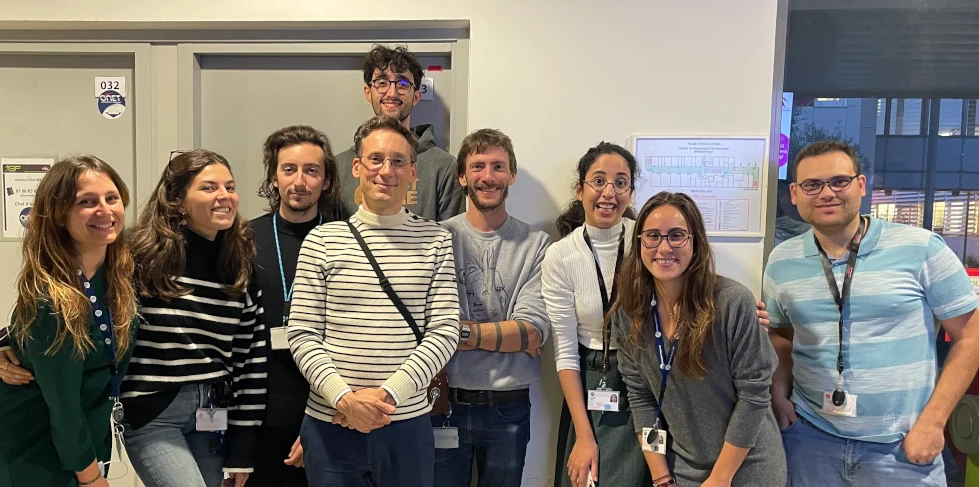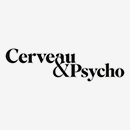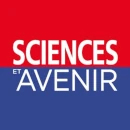Team Amaury FRANÇOIS
Neuronal networks for affective and social touch

The emotional dimension of tactile stimulation is a major component of our lives, yet the neural processes responsible for assigning positive or negative value to touch remain largely understudied. Our research team is seeking to better understand the mechanisms and neural networks involved in affective and social touch. We are also interested in pathologies that may be associated with poor integration of affective touch, such as autism spectrum disorders and depression and anxiety associated with chronic pain.
Tactile perception and discrimination have been expensively studied throughout the prism of whisker exploration in rodent. This work greatly improved our understanding of the discriminative aspect of touch and how the quality of a tactile stimuli can be associated with other sensory process to help creating a goal directed behaviour. In comparison little is known about the neuronal process of how the rest of the body integrates tactile information, in particular through the skin. Skin and whiskers are not the same organs and thus probably do not share the same physiological function. For example, the skin has been proposed to be a social organ, conveying much more than just discriminative information. This suggests that information coming from skin receptors is not integrated the same way in the central nervous system (CNS). Surprisingly, this process is largely understudied and the neuronal mechanisms and circuits responsible for attributing an emotional value to tactile stimuli are almost unknown.
The overall goal of our lab is to identify the neural networks engaged during affective and pleasurable touch and understand how somatosensory and reward pathways interact to create a goal directed behaviour. We are also interested in pathologies which can be associated with a mis integration of affective touch, such as autism spectrum disorders and depression and anxiety associated with chronic pain.
To reach our goals, the lab uses multiple approaches ranging from sophisticated mouse genetics, in vitro, ex vivo and in vivo calcium imaging and electrophysiology, to molecular biology and behavioral analysis based on machine learning.
This Team is supported by the Impulscience Program (Fondation Bettencourt Schueller) and the agence national de la recherche.


 IGF Sud 025
IGF Sud 025 04 34 35 93 17
04 34 35 93 17-
2013PhD in Biology and Health - University of Montpellier 2 - France
-
2009Master's degree in Physiology and Neurobiology - University of Montpellier 2 - France
-
2007Bachelor's degree in Neurobiology, Pharmacology and Biotechnology - University of Nice - France
-
2003Baccalauréat S - Cannes - France
-
2023-Team leader, Institute of Functional Genomics (IGF) - Montpellier - France
-
2017-Research Fellow, Institute of Functional Genomics (IGF) - Montpellier - France
-
2013-2017Postdoctoral Fellow, Department of Anesthesiology, Perioperative and Pain Medicine - Stanford University - California - USA
-
2009-2013Doctoral internship, Institute of Functional Genomics (IGF) - Montpellier - France
-
2022Impulscience Prize from the Bettencourt Schueller Foundation
-
2021Hank McIntosh Lecture McGill University
-
2018-2019IASP Early Career Research Award

 IGF Nord 018
IGF Nord 018 04 34 35 93 17
04 34 35 93 17-
2011PhD in Neurosciences - Sorbonne-University - Paris - France
-
2021-Researcher at Inserm - Institute of Functional Genomics - Montpellier - France
-
2018-2020Instructor - Harvard Medical School - Boston - MA - USA
-
2012-2017Postdoctoral Fellow - Harvard Medical School - Boston - MA - USA
-
2008-2011PhD student - UMRS 952/UMR7224 - Sorbonne-University - Paris - France
-
2022Fyssen Foundation
-
2022-2024BBRF NARSAD Young Investigator grant
-
2016MGH ECOR Fund for Medical Discovery
-
2014-2016BBRF NARSAD Young Investigator grant
-
2014Philippe Foundation Award
-
2013Philippe Foundation Award
-
2013Bettencourt-Schueller Foundation
-
2010Fondation pour la Recherche Médicale (PhD fellowship)
- I am an analytical scientist with over 15 years of experience in neurobiology.
- Experience in mouse behavior, optogenetics, live calcium imaging and fluorescence microscopy.

 IGF Nord 018
IGF Nord 018 04 34 35 92 17
04 34 35 92 17-
2022MSc - Health Biology - Montpellier University - France
-
2016Technical Diploma - Biology - Speciality Agronomy - Perpignan - France
-
2023-PhD student in Behavioral Neurosciences - Institute of Functional Genomics - Montpellier - France
-
2018-2019Intro staff - The vervet Monkey Foundation - South Africa
-
2018Volunteer animal caretaker (primate department) - Stiching AAP - Netherlands
- Currently PhD student in Behavioral Neurobiology, my academic background is focused in animal physiology, while my professional interests and extra-curricular experiences gather knowledges in behavioral studies of non-human primates. As part of my PhD, I'm interested in the neural mechanisms responsible for defensive behavior, in particular the avoidance behavior, and the memory processes involved.
- My domains of interest in research are:
- neuro-circuitry
- animal behavior
- Designer Level 1 training
- Data analysis
- GraphPad Prism
- Pack Office
- Image J
- Adobe Illustrator

 IGF Sud 025
IGF Sud 025 04 34 35 93 17
04 34 35 93 17

 IGF Nord 018
IGF Nord 018 04 34 35 93 17
04 34 35 93 17

 IGF Sud 025
IGF Sud 025 04 34 35 92 17
04 34 35 92 17

 IGF Sud 125
IGF Sud 125 04 34 35 92 48
04 34 35 92 48

 IGF Nord 018
IGF Nord 018 04 34 35 93 17
04 34 35 93 17

 IGF Sud 025
IGF Sud 025 04 34 35 92 48
04 34 35 92 48

 IGF Nord 018
IGF Nord 018 04 34 35 93 17
04 34 35 93 17

 IGF Sud 025
IGF Sud 025 04 34 35 93 17
04 34 35 93 17

 IGF Nord 109
IGF Nord 109 04 34 35 92 20
04 34 35 92 20

 IGF Sud 025
IGF Sud 025 04 34 35 93 17
04 34 35 93 17

 IGF Nord 018
IGF Nord 018 04 34 35 92 13
04 34 35 92 13
- François A, Schüetter N, Laffray S, Sanguesa J, Pizzoccaro A, Dubel S, Mantilleri A, Nargeot J, Noël J, Wood JN, Moqrich A, Pongs O, Bourinet E. The Low-Threshold Calcium Channel Cav3.2 Determines Low-Threshold Mechanoreceptor Function. Cell Rep. 2015 Jan 14. pii: S2211-1247(14)01095-X. PubMed PMID: 25600872.
- François A, Low SA, Sypek EI, Christensen AJ, Sotoudeh C, Beier KT, Delp SL, Malenka RC, Luo L, Sharif-Naeini R, Ramakrishnan C, Deisseroth K, Hantman AW, Scherrer G. GABAergic Neurons of Rostral Ventromedial Medulla Facilitate Pain via a Dorsal Horn Disynaptic Inhibitory Circuit. 2017 Feb 22;93(4):822-839.e6. PubMed PMID: 28162807.
- Huzard D, Martin M, Maingret F, Chemin J, Jeanneteau F, Méry PF, Fossat P, Bourinet E, François A. The impact of C-Tactile Low threshold mechanoreceptors on affective touch and social interactions in mice. Science Advances 2022. Jul;8(26):eabo7566; PubMed PMID: 35767616
- Live mouse tracker analysis toolbox
LWTools v1.0.9: 2023 (https://pypi.org/project/LWTools/)

Show Les invités du 16/19
Le chercheur montpellierain Amaury François et le toucher émotionnel
January 2023

Fondation Bettencourt Schueller
C fondamental – Amaury François : Comment arrive-t-on à communiquer à travers le toucher ?
September 2023

La revue de l’Institut Polytechnique de Paris
Du toucher à la relation sociale : la magie des neurones
October 2022


Replay Twitch
Douleur et plaisir, comment le cerveau les capte
May 2023





